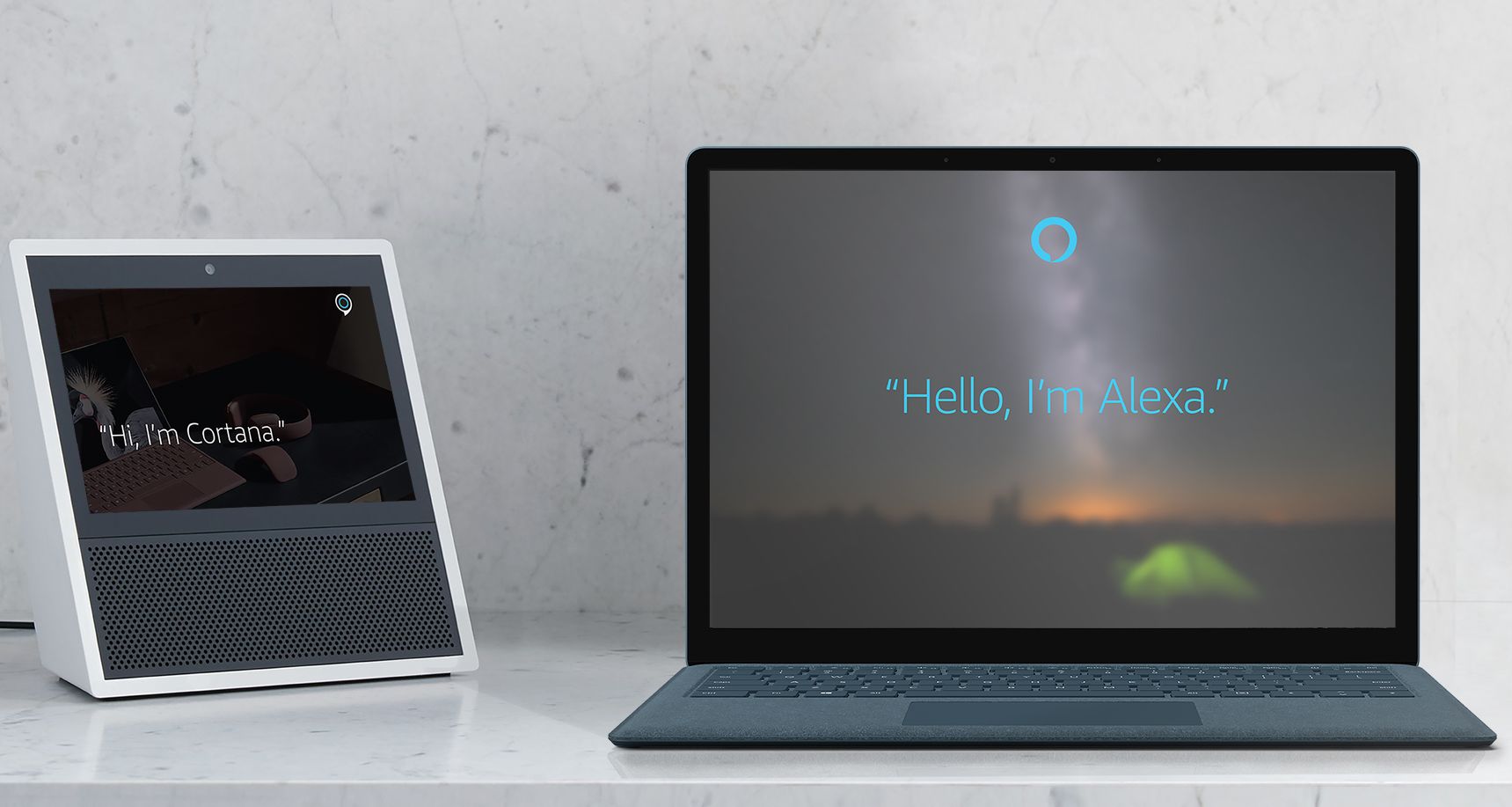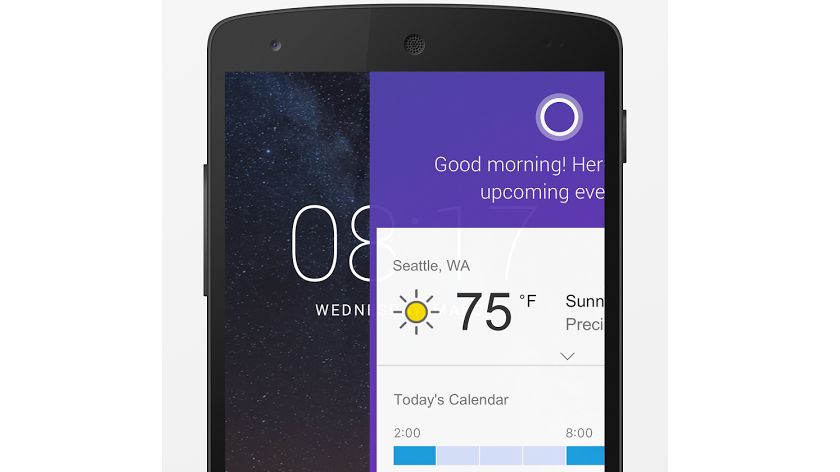Affiliate links on Android Authority may earn us a commission. Learn more.
Cortana quits Android, and more tech you need to know today
Published onNovember 18, 2019

Your tech digest, by way of the DGiT Daily newsletter, for Monday, November 18.
1. Cortana curtailed

The tech industry doesn’t kill off its services or apps with much fanfare, usually a quiet release on a Friday evening, usually hiding in some kind of upbeat confusion.
On that note, here’s Microsoft’s admission (on late Friday) that Cortana is being made “as helpful as possible” by, er, being killed off:
- “To make your personal digital assistant as helpful as possible, we’re integrating Cortana into your Microsoft 365 productivity apps. As part of this evolution, on January 31st, 2020, we’re ending support for the Cortana app on Android and iOS in your market.”
- “After January 31st, 2020, the Cortana mobile app on your phone will no longer be supported and there will be an updated version of Microsoft Launcher with Cortana removed.”
- Gizmodo, in a post titled “Farewell, Cortana” clarified with Microsoft that this included Great Britain, Australia, Germany, Mexico, China, Spain, Canada, and India.
- Y’know, half the population of the world or so.
- Cortana in the US continues in the original form, but this is much bigger than what Microsoft is admitting.
- I know multiple people in Australia who were hired to write for Cortana, tasked with writing fun jokes, and adapting language for Australians, to give the assistant a user experience customized for that locale — no small task, I’m told.
Curtains for Cortana:
- Cortana has been in reverse for some time. Without a default smartphone tie-in like Google Assistant and Apple’s Siri, or dedicated in-home product range like with Amazon Echo with Alexa, Cortana was generally confined to Windows 10 by default, and third-party Microsoft apps by invitation.
- All the way back in January, Microsoft CEO Satya Nadella said that the company was taking a different approach, not competing with Alexa or Google Assistant, but integrated within all competing voice assistants, along with Office 365, as a skill or service. Um, a bit like Clippy 2.0.
- Also, the head of Cortana, Javier Soltero, left the company back in November last year.
- And Microsoft shifted Cortana from the AI and Research department into its Experiences and Devices team, as noted by The Verge.
- As a commenter said: “We barely knew you Cortana. Actually we had no interest in knowing you because you were pointless on a Windows laptop and redundant on iOS or Android.” Yup.
What next?
- The problem remains that Google Assistant and Amazon Alexa are not very useful. But they’re still vastly more useful than Cortana ever was, while I do wonder what Apple is doing with Siri.
- Siri isn’t on life support by any means, but apart from a recent integration for shopping with Walmart, which was already on the Google Assistant since April, it just doesn’t have much cut-through. Apart from the fun, weird, accidental mistakes that occasionally plague these devices.
- Look, you can get Siri stuck in an infinite loop, right now by saying “Hey Siri, I just”
- Siri responds with, “I don’t know what you mean by, ‘Hey Siri, I just'”, then hears itself saying “Hey Siri, I just” and responds again with the same message, forever.
- This is years after launch.
- It’s clearly a supremely difficult problem that can’t readily be “solved”. Current technology and approaches continue to make gains, but at a steady rate of improvement.
- On that note, I found quantum.country over the weekend, 26,300 words explaining quantum computing in an enjoyable though still wildly complex format, starting all the way back with Alan Turing’s work on creating the concept of a computer.
2. Ford just pulled the wraps off its first mass-market electric car with a big LA event: the Mustang Mach-E, an all-electric longe-range SUV set for late 2020, with Mustang performance (The Verge).
3. The later Google Pixel 4 reviews aren’t getting any better. From boss man Kris Carlon here: My Pixel 4 pickle: I love it and hate it at the same time, which includes the line: “I wouldn’t recommend this phone to anyone but I still use it every day.” (Android Authority). On that note, Google’s reputation is becoming its biggest problem: Are perceptions of being fickle, unreliable, distant, yet unavoidably everywhere, fair? (Android Authority).
4. Today the web fundamentally changed for the worse: The .org TLD has been sold, moving from a not-for-profit owner to private investment ownership. The new owner is called “Ethos Capital,” which is probably more irony than ethos (The Verge).
5. Why streaming services let you share your password, for now (from me!) (Android Authority).
6. Wow, here’s a must-read: Someone is using unknown and unprecedented technology to mess with GPS in the world’s busiest port in Shanghai. A fascinating mystery (MIT Technology Review).
7. Firefox’s fight for the future of the web (The Guardian).
8. WeChat started as a chat app, now it’s a superapp with more than a billion monthly active users. China shops on WeChat, pays on WeChat, reads news on WeChat, lives all aspects of life on WeChat. Welcome to the completely integrated WeChat internet (NY Times).
9. Here’s what to do when you go to China if you work in tech (Twitter).
10. Bored of the coins (TechCrunch). Is this the trough of disillusionment for crypto?
11. The largest study ever undertaken focusing on the use of heart stents found they are mostly ineffective in reducing the risk of heart attacks when compared with taking medications (STAT).
DGiT Daily: Your Tech Resource
The DGiT Daily delivers a daily email that keeps you ahead of the curve for all tech news, opinions, and links to what’s going down in the planet’s most important field. You get all the context and insight you need, and all with a touch of fun, and the daily fun element that you otherwise miss.